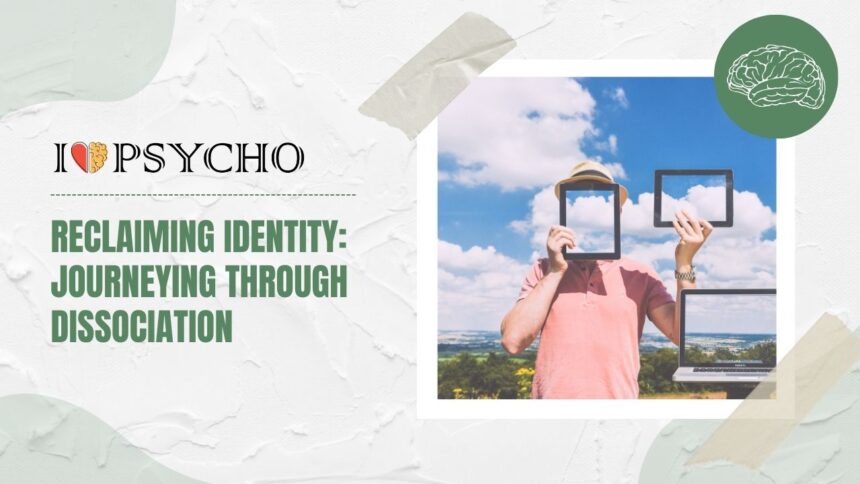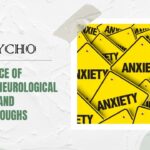Introduction to Dissociation
Have you ever felt like you were watching your life unfold from a distance, as if it were happening to someone else? Welcome to the complex world of dissociation. It’s a phenomenon that can leave you feeling disconnected from yourself and reality, impacting every aspect of your identity. Join us on a journey through understanding dissociative disorders, exploring their causes, coping mechanisms, and the transformative power of therapy in reclaiming your true self. Let’s dive into reclaiming identity amidst the chaos of dissociation.
Understanding the Different Types of Dissociative Disorders
Dissociative disorders can manifest in various ways, each impacting an individual’s sense of self differently. One common type is Dissociative Amnesia, where a person experiences memory loss surrounding a traumatic event. Depersonalization Disorder involves feeling detached from one’s body or emotions, like watching oneself from outside. Another type is Dissociative Identity Disorder (DID), characterized by the presence of two or more distinct personalities within one individual.
These disorders often stem from overwhelming trauma or stress that the mind cannot process cohesively. It’s essential to recognize the nuances of these disorders to provide appropriate support and treatment for those affected. By understanding the different types of dissociative disorders, we can begin to unravel the complexities of how trauma impacts our psyche and identity.
Causes of Dissociation and Trauma
Dissociation and trauma are deeply interconnected, often stemming from overwhelming experiences that the mind struggles to process. Trauma can result from various events like abuse, neglect, accidents, or even witnessing something traumatic. These experiences can fracture one’s sense of self and reality, leading to dissociative symptoms as a coping mechanism.
It’s essential to understand that each individual may respond differently to trauma, with some developing dissociative disorders as a way to protect themselves from the distressing memories or emotions associated with the trauma. The brain’s response to such intense stressors can result in compartmentalizing memories or aspects of oneself as a defense mechanism.
Moreover, childhood trauma is particularly significant in shaping how dissociative disorders manifest later in life. Adverse experiences during formative years can disrupt normal psychological development and contribute significantly to the onset of dissociation. Understanding these underlying causes is crucial in addressing and healing from dissociative disorders effectively
Coping Mechanisms for Dissociation
When facing dissociation, finding healthy coping mechanisms is crucial for managing the overwhelming feelings of disconnection. Engaging in grounding techniques such as deep breathing exercises can help bring you back to the present moment, anchoring you in reality. Creating a safe space at home with comforting objects or soothing music can provide a sense of security during episodes of dissociation.
Journaling your thoughts and emotions can be a powerful way to process underlying triggers and gain insight into your experiences. Developing a routine that includes self-care activities like exercise, meditation, or spending time in nature can promote overall well-being and stability. Connecting with supportive friends or loved ones who understand your struggles can offer comfort and validation.
Seeking professional help from therapists trained in treating dissociative disorders is essential for long-term healing. Therapy sessions can provide tools to navigate challenging emotions and work through traumatic memories effectively. Remember, it’s okay to ask for help when needed – you deserve support on your journey towards reclaiming your identity amidst dissociation.
The Importance of Therapy in Healing from Dissociative Disorders
Therapy plays a crucial role in the journey of healing from dissociative disorders. It provides a safe space for individuals to explore their experiences, process their emotions, and learn coping strategies. Through therapy, individuals can develop a deeper understanding of themselves and the root causes of their dissociation.
A skilled therapist can help guide individuals towards integration and self-discovery. By building a trusting therapeutic relationship, clients feel supported as they navigate through their trauma and work towards reclaiming their identity.
Therapy offers tools such as grounding techniques, mindfulness practices, and cognitive-behavioral interventions that are tailored to address the unique needs of each individual. These tools empower individuals to regain control over their thoughts and behaviors while fostering resilience.
Seeking therapy is not a sign of weakness but rather an act of courage and self-care. It takes strength to confront past traumas and embark on the path towards healing. Therapy provides a beacon of hope for those struggling with dissociative disorders by offering guidance, validation, and support along the way.
The Impact of Dissociation on Identity
When dissociation takes hold, it can fragment one’s sense of self. The impact on identity is profound, leading to a feeling of detachment from oneself and the world around. It blurs the lines between reality and imagination, leaving individuals feeling lost in a maze of emotions and experiences.
Identity becomes elusive as different parts of oneself surface at various times, creating a disjointed narrative. This internal conflict can lead to confusion about who one truly is, causing distress and uncertainty. The struggle to reconcile these fragmented aspects can be overwhelming, affecting relationships and daily functioning.
As dissociation disrupts the continuity of thoughts, feelings, and memories, it challenges the very essence of identity. Each alter or dissociative state may have its own unique characteristics and beliefs that further complicate the sense of self. Reclaiming identity amidst dissociation requires patience, understanding, and professional guidance for integration and healing.
Recovery involves navigating through this intricate process towards wholeness once again – piecing together fragments into a cohesive sense of self.
Seeking Professional Help for Dissociation
Seeking professional help for dissociation is a crucial step towards reclaiming your identity and finding healing. Therapists specializing in trauma and dissociative disorders can provide valuable support and guidance on your journey. They create a safe space for you to explore the root causes of your dissociation and develop coping strategies.
Therapy sessions may involve techniques such as cognitive behavioral therapy, dialectical behavior therapy, or eye movement desensitization and reprocessing to address underlying trauma. A therapist can also assist you in building self-awareness, grounding techniques, and emotional regulation skills to manage dissociative episodes effectively.
Remember that seeking help is not a sign of weakness but a brave choice towards self-discovery and growth. Therapy offers a non-judgmental environment where you can process complex emotions, memories, and behaviors associated with dissociation. By working collaboratively with a therapist, you empower yourself to navigate through challenges while fostering resilience and inner strength.
If you’re considering seeking professional help for dissociation, take that first step today by reaching out to mental health professionals who specialize in treating dissociative disorders. Your journey towards healing starts with acknowledging the need for support – don’t hesitate to prioritize your well-being by seeking the assistance you deserve.
Healing and Reclaiming Identity Through Therapy
Embarking on the journey of healing and reclaiming one’s identity through therapy is a courageous step towards inner growth. Therapy provides a safe space to explore past traumas, unravel ingrained patterns, and discover the essence of one’s true self.
Through introspection and guidance from a therapist, individuals can untangle the web of dissociation that has clouded their sense of identity. By delving into their emotions, thoughts, and behaviors, they begin to piece together fragments of themselves that were once scattered.
Therapy offers tools and techniques to cope with triggers, manage symptoms, and build resilience in the face of adversity. It empowers individuals to confront their fears, confront distorted beliefs about themselves, and cultivate self-compassion.
As healing progresses, individuals often experience a profound shift in perception – seeing themselves not as broken or damaged but as resilient survivors capable of rewriting their narrative. The process is arduous yet rewarding as they slowly unveil layers of authenticity buried beneath years of dissociation.
Personal Stories: Voices from Those Who Have Overcome Dissociative Disorders
In the journey of overcoming dissociative disorders, personal stories play a vital role in providing hope and inspiration to others walking a similar path. Each individual’s experience is unique, yet they all share a common thread of resilience and strength.
One voice may speak of the struggles faced during therapy sessions, while another may highlight small victories that eventually led to significant breakthroughs. These narratives serve as reminders that healing is possible, no matter how daunting the challenges may seem.
Through sharing their journeys openly, those who have overcome dissociative disorders offer reassurance to others who may feel lost or overwhelmed. Their stories shed light on the complexities of trauma recovery and emphasize the importance of self-compassion and patience along the way.
These voices not only validate the experiences of survivors but also encourage them to continue seeking support and working towards reclaiming their identities. By amplifying these stories, we create a community of understanding and empowerment for those on their own paths to healing.
Conclusion
The journey through dissociation is a challenging one, but it is not one that you have to face alone. By seeking professional help and engaging in therapy, individuals can begin the process of healing and reclaiming their identity. Remember, recovery is possible, and there is hope for a brighter future ahead. Embrace your journey towards healing and know that you are deserving of love, understanding, and support every step of the way. Stay strong and keep moving forward on your path to reclaiming your true self.









